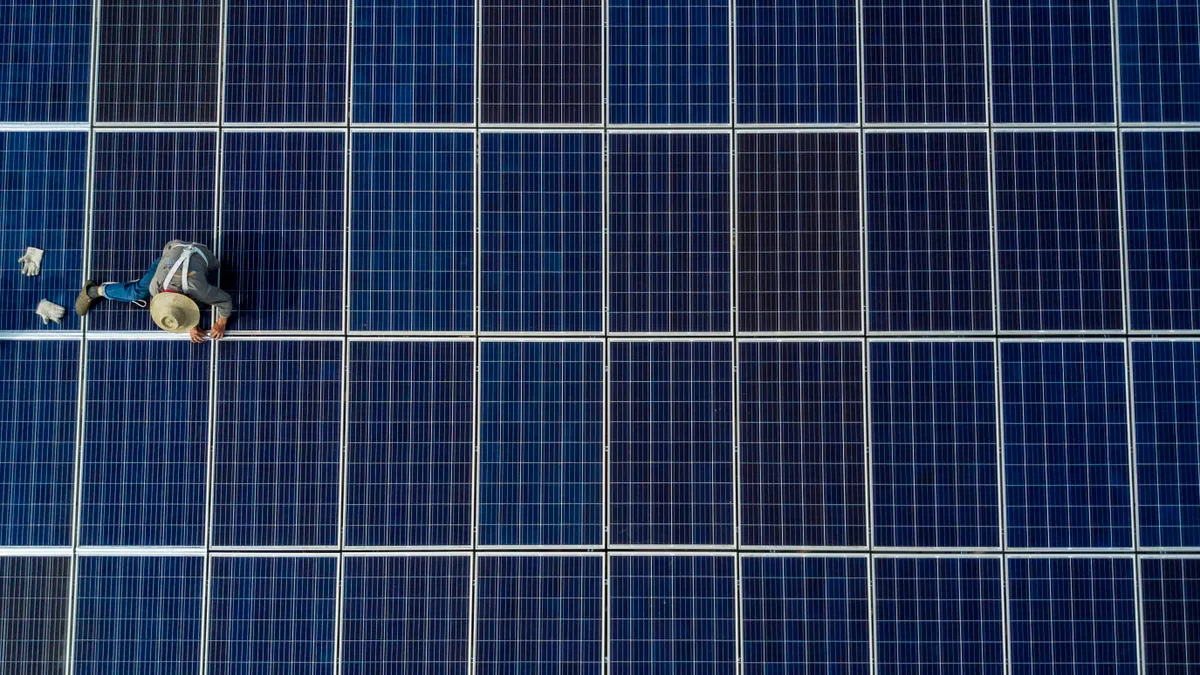Dive Brief:
- Senator Jacky Rosen, D-Nev., is calling for other Democratic senators to join her in opposing a joint resolution of disapproval that would overturn President Joe Biden’s two-year moratorium on solar panel tariffs related to imports from four Southeast Asian countries.
- In an unpublished memo sent to her Democratic colleagues, Rosen writes that repealing the tariff pause would be “misguided” and potentially “devastating” to the solar industry, according to a person familiar with the memo.
- The joint resolution was introduced Feb. 16 by Sen. Rick Scott, R-Fla. under the Congressional Review Act.
Dive Insight:
Along with Scott, seven other Republican senators have cosponsored the resolution. A House version, introduced March 7, has 10 cosponsors — five of them Democrats.
The two-year pause now in effect prevents any new tariffs associated with a U.S. Department of Commerce investigation into solar panel imports from Malaysia, Vietnam, Thailand and Cambodia. The Biden administration sought to give the solar industry time to import components from those countries as it builds up a domestic supply chain.
The Commerce Department announced in December that it had made a preliminary affirmative determination that solar panels imported from those countries circumvented tariffs on Chinese-made solar components, delivering a blow to the industry. Commerce’s final determination is expected May 1.
Along with introducing the resolution, Scott joined Sen. Bill Posey, R-Fla., in sending a Feb. 16 letter to the secretaries of commerce and defense that said solar panels reportedly found on a Chinese balloon that had entered U.S. airspace in late January to early February were likely Chinese-made panels, therefore the moratorium should be overturned.
“Not only is the Biden administration protecting Chinese solar companies and allowing them to continue illegal trade activity without consequence, but the administration is also quite possibly protecting the very same companies providing solar panels that are powering Chinese spy balloons,” Scott and Posey wrote.
Barring any change, the pause will be effective through June 2024.
U.S. solar installations declined in 2021 and 2022, according to consulting firm Wood Mackenzie, as developers grappled with supply constraints resulting from the Commerce investigation, enforcement of the Uyghur Forced Labor Prevention Act, and COVID’s overall impact on the global supply chain.
But demand for solar projects increased in 2022 after the passage of the Inflation Reduction Act, which contained tax credits incentivizing renewable energy projects. Rosen’s memo said that the resolution of disapproval would “undermine the success of the Inflation Reduction Act by starving the American solar market from critically important panels and cells that cannot be obtained in the U.S.”
She said U.S. solar panel manufacturers are currently only able to meet 15% of domestic demand on their own.
Though domestic solar companies like First Solar are making large investments in rapid manufacturing expansions, doubt exists in the industry as to whether even the two-year pause would provide enough time for build-out.
Robb Jetty, chief operating officer at Distributed Solar Development, said in a December interview that a two-year timeline for establishing a robust domestic solar supply chain was “literally impossible” and there is “no way that manufacturing capacity would be able to respond in that time period to meet the demands of projects that developers are going to want to bring online.”
Rosen’s memo states that the pause was a “prudent compromise to allow a transition period” and that the “misguided Republican resolution” would upend the industry’s delicate balance of supply and demand.















